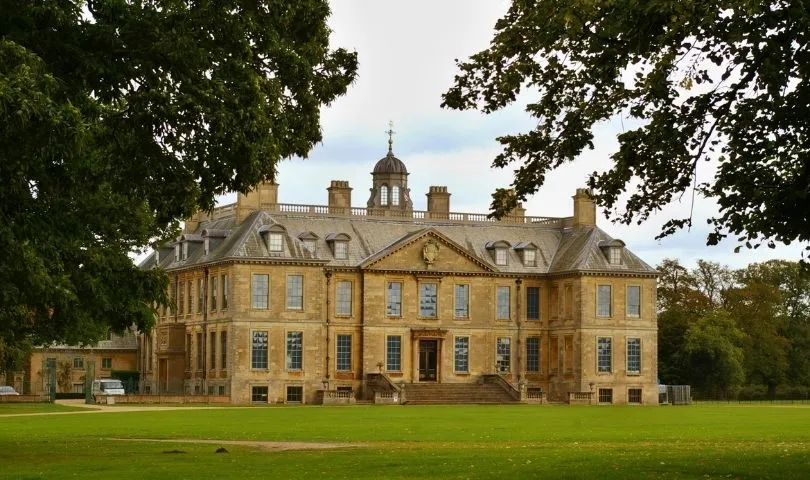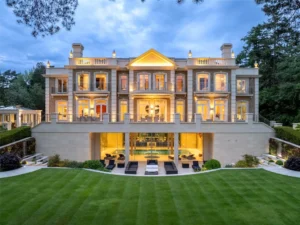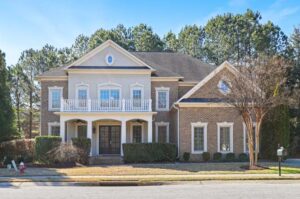Stately homes have long been associated with grandeur, history, and a sense of timeless elegance. These magnificent properties, often set on expansive estates, have housed aristocrats, dignitaries, and influential figures for centuries. Today, stately homes for sale offer a unique opportunity to own a piece of history, blending classic architectural features with modern luxuries.
For those looking to invest in a grand residence, understanding the intricacies of purchasing, maintaining, and enjoying a stately home is essential. This guide delves into everything you need to know about stately homes for sale, from their history and features to the financial and lifestyle considerations involved.
The History and Appeal of Stately Homes
Stately homes have their roots in European aristocracy, particularly in the United Kingdom, France, and Germany. These vast estates were often built between the 16th and 19th centuries, designed to showcase wealth, power, and refinement. Many stately homes for sale today retain their historic charm while incorporating modern upgrades to suit contemporary living.
The appeal of these homes lies in their breathtaking architecture, vast gardens, and unparalleled craftsmanship. Many feature grand staircases, ornate ceilings, intricate woodwork, and expansive grounds. Beyond their beauty, stately homes often come with fascinating stories, having played host to historical events, royal visits, and significant cultural moments.
Finding Stately Homes for Sale
If you’re in the market for a stately home, several avenues can help you find the perfect property. Real estate agencies specializing in luxury and heritage properties are an excellent starting point. Online platforms dedicated to historic homes also offer listings of stately homes for sale across various regions.
Key factors to consider when searching for a stately home include:
- Location: Proximity to urban centers, accessibility, and natural surroundings all play a role in property value and lifestyle convenience.
- Architectural Style: Whether you prefer Georgian, Victorian, Tudor, or Baroque styles, each type offers distinct characteristics and historical significance.
- Condition: Some stately homes for sale require extensive renovation, while others have been meticulously maintained or restored.
- Amenities and Land Size: Consider whether the property includes landscaped gardens, guest houses, equestrian facilities, or additional outbuildings.
Financial Considerations of Buying a Stately Home
Purchasing a stately home is a significant financial commitment that goes beyond the initial acquisition cost. Here are some key financial factors to keep in mind:
Purchase Price and Market Trends
The price of stately homes for sale varies widely based on factors such as location, condition, historical importance, and land size. Buyers should research market trends to ensure they are making a sound investment. Working with an experienced luxury real estate agent can provide valuable insights into pricing and potential appreciation.
Maintenance and Upkeep
Owning a stately home comes with substantial maintenance responsibilities. These properties often require ongoing preservation efforts, including roof repairs, stone restoration, and landscape management. Budgeting for upkeep is crucial to maintaining the home’s integrity and value.
Property Taxes and Insurance
Due to their size and historical significance, stately homes typically come with higher property taxes and insurance costs. Understanding these expenses beforehand helps prevent financial strain down the road.
Potential for Revenue Generation
Many owners of stately homes offset costs by generating income through various means, such as:
- Renting the property for weddings and events.
- Operating it as a boutique hotel or bed and breakfast.
- Leasing farmland or equestrian facilities.
- Allowing film productions to use the estate as a set.
Restoring and Modernizing a Stately Home
While some stately homes for sale are move-in ready, others require significant restoration efforts. Balancing historical preservation with modern convenience is key to making the home comfortable while maintaining its character.
Key Restoration Challenges
Restoring a stately home often involves:
- Repairing historical features such as fireplaces, stained glass windows, and intricate moldings.
- Upgrading plumbing, electrical systems, and heating without compromising the home’s original aesthetics.
- Addressing dampness and structural concerns common in older buildings.
Integrating Modern Comforts
Modernizing a stately home can enhance its livability without detracting from its charm. Common upgrades include:
- Installing state-of-the-art kitchens and bathrooms.
- Implementing energy-efficient heating and cooling systems.
- Enhancing security features while preserving traditional elements.
Lifestyle Benefits of Owning a Stately Home
Living in a stately home offers a unique lifestyle that blends luxury with history. The vast space and grandeur allow homeowners to enjoy privacy, serenity, and a connection to the past.
Hosting and Entertaining
Stately homes are designed for grand entertaining, making them ideal for hosting lavish gatherings, cultural events, and family reunions. Many properties feature ballrooms, banquet halls, and spacious outdoor terraces, perfect for large-scale events.
Connection to Nature
With extensive gardens, woodlands, and sometimes even lakes or rivers, stately homes offer unparalleled access to nature. Homeowners can enjoy activities such as horseback riding, gardening, and outdoor dining in a picturesque setting.
Heritage and Legacy
Owning a stately home is more than just a real estate investment—it’s a way of preserving history and contributing to cultural heritage. Many stately homeowners take pride in restoring and maintaining these grand estates for future generations.
Conclusion
For those with a passion for history, luxury, and timeless architecture, stately homes for sale present an extraordinary opportunity. These magnificent residences offer more than just a place to live; they provide a unique lifestyle enriched by heritage, elegance, and grandeur.
However, purchasing and maintaining a stately home requires careful consideration, financial planning, and a commitment to preservation. Whether you’re seeking a move-in-ready estate or a restoration project, owning a stately home is a rewarding endeavor that allows you to embrace the past while enjoying modern comforts.
If you’re ready to explore stately homes for sale, working with a knowledgeable real estate agent specializing in heritage properties is the first step toward finding your dream estate. With the right approach, your vision of owning a grand, historic residence can become a reality.






